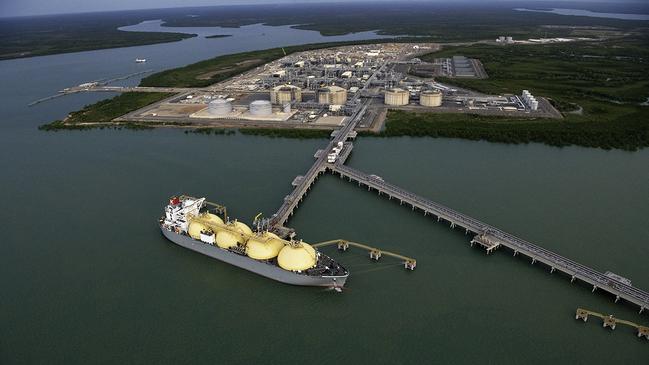Don’t fear gas price controls: ACCC
Australia’s big LNG exporters have nothing to fear from the introduction of formal price controls say regulators and buyers.

The competition regulator and major gas buyers say Australia’s big east coast LNG exporters have nothing to fear from the potential introduction of formal price controls, arguing the move is justified to ensure a fair price for domestic users.
A draft heads of agreement sent to Queensland’s three LNG producers refers to a pricing mechanism for the first time, following sustained pressure from Australia’s big manufacturers for cuts to their gas costs, The Australian reported on Friday.
The Australian Competition & Consumer Commission recommended the heads of agreement should strengthen requirements around price offers to gas buyers and said producers had no grounds to push back against an LNG netback formula — a local LNG price that takes out the cost of sending gas to Asian customers.
“The feedback I get from the contact I do have with politicians is that something like that will go into the heads of agreement. That’s my understanding,” ACCC chairman Rod Sims told The Weekend Australian.
“And let’s be clear here. We‘re not setting a price that says you’ve got to sell it for X dollars a gigajoule. What we’re doing — and what we’ve recommended — is that you undertake to sell gas at the alternative price you could have got by flogging it overseas. So by definition you should be indifferent.”
The Australian Domestic Gas Security Mechanism pact has worked for the last few years by ensuring LNG exporters offer uncontracted gas to the domestic market in the event of a shortfall, before it is shipped offshore to Asian buyers.
It is currently based on a supply mechanism, but the three LNG producers — the Santos-led GLNG project, Origin Energy’s APLNG and Shell’s QCLNG — which sank more than $70bn into building Queensland’s giant gas export industry are worried about an additional reference to price informing decisions on triggering LNG export controls.
Still, Mr Sims argued the price move was about finding the right balance between a big export industry and the needs of domestic gas users.
“The only reason you wouldn’t be indifferent is you can actually sell it domestically for more than the alternative and you’d rather do that,” the ACCC chief said.
“I understand why they’d rather do that but I think it’s fair for the government to say, look if you can get $7 or $6 for this gas overseas then that’s what you should be getting domestically, rather than taking advantage of the fact that there’s not sufficient competition in the domestic market.”
Major gas users including billionaire Anthony Pratt’s Visy Industries, Qenos, Incitec Pivot and Orica took part in a high-level meeting a week ago with Resources Minister Keith Pitt and Energy Minister Angus Taylor to put forward their case for the policy change.
Qenos, Australia’s largest plastics producer, said the price control was justified to ensure Australian manufacturing remained afloat.
“I’m in favour of a mechanism that delivers internationally competitive pricing into our operations. That’s critically important to keep manufacturing going,” Qenos chief executive Stephen Bell said. “We’re all in the same boat and we must find a way to get there. We’re in a position as a country where we’ve got so much gas, but there needs to be enough for exporters and domestic customers. So let’s find that solution.”
Enforcing any price controls should the policy come into place will also be critical, according to the Energy Users Association of Australia, which represents large power and gas consumers.
“It’s a good next step but what’s the enforceability of that price mechanism?” EUAA chief executive Andrew Richards said.
“It’s like a code of conduct but if there’s no consequence for non-compliance it’s just a piece of paper hanging on the wall.”
While current LNG netback prices are relatively low given a weaker Asian market, buyers may live to rue pushing for the price link should the market reverse in years to come, according to Credit Suisse.
“The road to price controls is arriving at its destination, despite denials in previous years by government agencies such as the ACCC that we would arrive here,” Credit Suisse analyst Saul Kavonic said.
“We suspect gas buyers will regret asking for this policy, because once LNG prices rise such a price mechanism will prove painful for them. We suspect gas buyers will embrace this policy for a couple of years until LNG spot prices are higher and then want to change the goalposts again.”


To join the conversation, please log in. Don't have an account? Register
Join the conversation, you are commenting as Logout